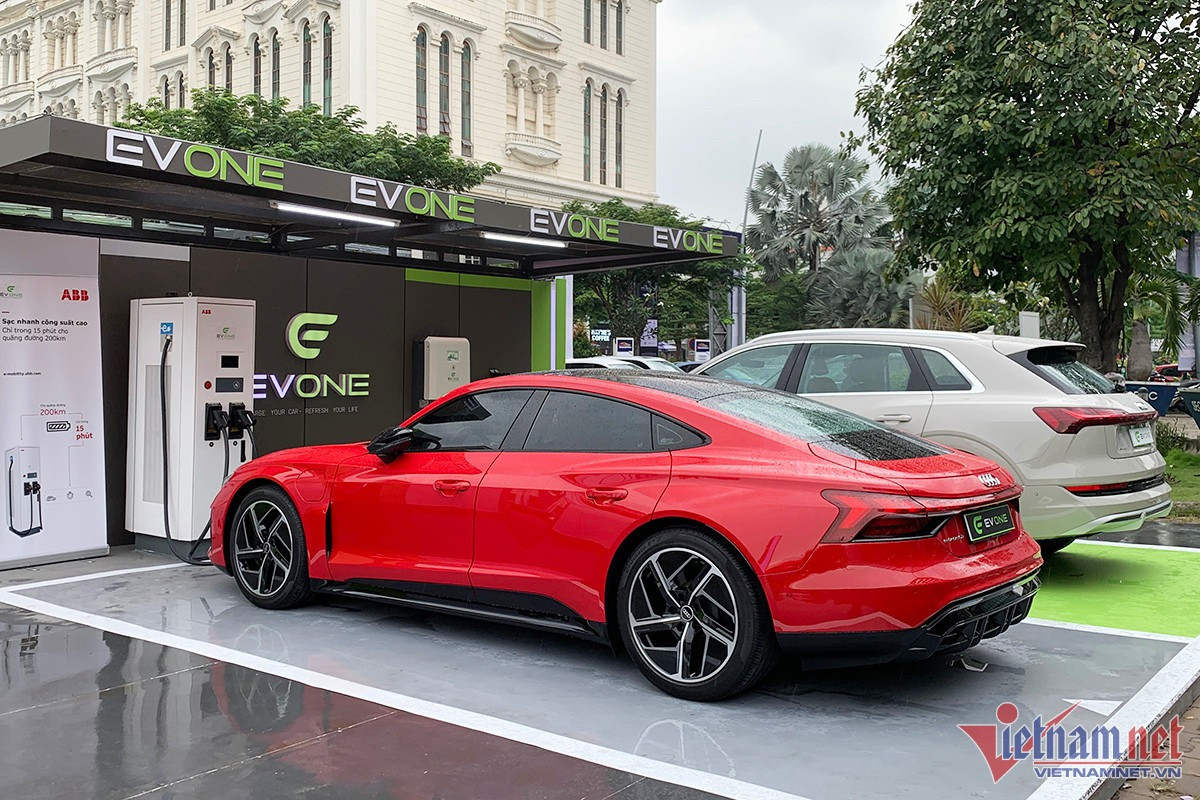
Moreover, it is difficult to find charging stations in Vietnam, and EVs are not accepted at many parking lots because of security fears.
A report showed that the number of new-energy vehicles globally increased sharply from 7.3 million in 2019 to 40.5 million in 2023. Vo Minh Luc, CEO of BYD Vietnam Automobile, said this is "growth at lightning speed".
In China, the growth rate was 70-100 percent per annum in 2019-2023. In Thailand, EVs accounted for 1 percent of total vehicles in 2022, but the figure soared to 12 percent just one year later, in 2023.
In Vietnam, though the number of EVs sold has increased, EVs just account for a small proportion of the total 300,000 cars consumed every year.
Luc believes that the potential of the green-car market in Vietnam is great. With population of 100 million and high proportion of young people, Vietnam is a vast market.
The number of Vietnamese car owners remains small (55 cars per 1,000 people) compared with Thailand and Indonesia.
Meanwhile, the number of motorbikes sold in Vietnam each year is very high, about 3 million products. Most motorbike owners want to have cars, which shows the great potential of the automobile and green-car market.
Vietnam’s transport infrastructure, especially the highway network, has developed rapidly, prompting people to use cars instead of bikes and motorbikes. It is less costly to use EVs, as EV owners just have to pay VND1 million a month for charging, much lower than expenses for gasoline.
However, Luc admitted that there are challenges in developing EVs in Vietnam. People question where they can charge their cars in the context of few charging stations available.
Luc believes that this is a problem that needs to be solved, pointing out that there are no charging stations in many residential quarters.
In some residential blocks and many parking lots, many EVs are rejected, mostly because of fear for insecurity.
Current policies on car use encouragement mostly target gasoline-run car buyers. The buyers can borrow 80 percent of the car value, while EV buyers can borrow 70 percent.
Director of the Institute for Carbon Finance Development Consulting (CODE) Le Xuan Nghia believes the government needs to support green-car manufacturing by easing the luxury tax, VAT, and tolls, and give support to development of charging stations.
Hoang Hiep